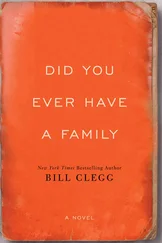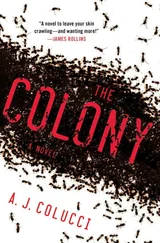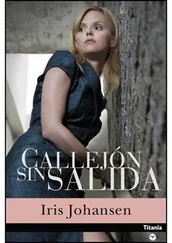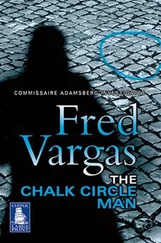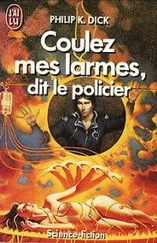“Oh, never mind all that,” Ginny said with a scowl.
“Luke, you’re such a dweeb,” Monica said.
He frowned at her. “I don’t see you helping.”
She snatched the paper from his hand. “You people are so lame. This is obviously a treasure map, and like any treasure map you just have to follow the instructions. It says right here, walk west of the woods and east of High Peak.”
Luke squinted at the map of Sparrow Island on the wall behind Mr. Bonacelli. “West of the woods, huh? That’s Canada. And east of High Peak would be France.”
“He’s right,” Isabelle said. “Those are opposite ends of the island. Either way, you’d fall into the ocean.”
Jules shook his head. “All these ideas are too rudimentary. George’s riddles were very clever. The answer wouldn’t lie in a sentence or two, but the entire passage as a whole.”
“Give it back to me.” Ginny swiped the paper from Monica and read silently this time, mouthing each word. “Oh, bloody hell! What if I can’t figure out this riddle?”
“I think it best you try.” Bonacelli put the original will in his briefcase and distributed the copies.
“So what’s the diamond worth?” Monica asked.
Bonacelli told her it was appraised at $350,000. “It’s quite rare. One of the few red diamonds in the world. Nearly one carat.”
“It must have been insured,” Isabelle said.
“No. Nothing George owned is insured. Too costly. Plus, he had trouble getting insurance with his… legal difficulties.”
Ginny eyed the lawyer suspiciously. “How do I know you didn’t take the diamond yourself? After you found George dead in the water?”
Jules gasped.
Monica laughed.
Bonacelli released a sigh while packing up his belongings. “I suppose you don’t. However, if you check my impeccable résumé, you’ll find I’m an extremely well-paid attorney for some very influential clients. The act of searching over a deceased man’s island for his only valuable possession is far below my character and completely illegal to boot. My business is entirely based on my reputation and integrity, which cannot be bought.” He picked up his trench coat from a hook and threw it over his arm. “What’s more, I’ve known George for twenty years and considered him a friend. Not only have I been on retainer free of charge for the last decade, it was I who paid for your passages here.”
“Well, fine, then,” Ginny muttered. “I wasn’t implying that you—”
“Certainly you were.”
She turned away with a huff.
“I might add,” Bonacelli said, “that if anyone is not returning on the charter today, it will be at your own expense, or until the next supply boat arrives in two weeks. Mrs. Maguire, you’re planning to stay with the children, correct?”
“Yes. We’ll wait for the next supply boat.”
“Miss Shufflebottom?”
“I’m certainly not leaving without my diamond.”
“What about you, Professor?”
“I’d like to look over the research George left me. However, two weeks is impossible. I have some business in London, and then a trip…” He glanced at Isabelle, who was looking out the window. “Actually, I’ll wait for the next boat as well.”
“All right. It seems everyone is staying, so I’ll show you around. We should start with the kitchen.”
* * *
It was a large country kitchen with oak cabinets and terra-cotta floors. It had recently been vigorously scrubbed clean and still smelled of bleach. Two stainless-steel freezers, a commercial-grade range, and a refrigerator took up half a wall. The other side held a large fireplace with a wood-burning stove and a rustic dining room table that could easily seat twenty guests.
“Don’t worry about water,” Bonacelli said, turning the faucet. “It’s pumped from an artesian well and quite safe.”
The pantry was stocked with canned vegetables, soups, and jars of spaghetti sauce. There were boxes of pasta and packages of instant everything. Isabelle wasn’t pleased with the selection, and chided herself for not bringing food to a remote island. However, the freezer turned out to be a pleasant surprise, filled with fine cuts of steak, chops, fish, and organic poultry. She browsed around the bright, fresh-looking vegetables and herbs that had been artfully sealed and frozen. The fridge as well offered an assortment of beverages, marinades, and condiments that hadn’t yet expired. There was even an impressive selection of wines in a climate-controlled cabinet.
“This is most important,” Bonacelli said, as they gathered around a two-way radio.
It was a fixed mount like the one on the boat, fastened beneath a cabinet. Bonacelli explained that it was programmed with twenty-two channels that monitored two Coast Guard stations for distress calls, and a marine channel that would alert them of any serious weather conditions. There was an antenna attached to the roof, in order to boost the range of the frequencies. “This is your only lifeline to civilization, should an emergency arise—and I do mean emergency . A visit from the Canadian Coast Guard to treat a jellyfish sting or investigate a shark sighting will cost you a fortune. But if anyone is seriously injured, or the power goes out, you should call at once.”
Bonacelli demonstrated how the radio worked, and just to make sure, he had Jules attempt a practice call to Captain Flannigan, waiting at the dock. He located the correct channel, called to the boat, and after a few seconds of static, the captain answered.
“Eh-yah, Acadia . Over.”
“This is just a demonstration,” Bonacelli spoke into the mic.
“Yer ready to shove off?”
“I’ll be at the dock in twenty minutes.” Bonacelli checked his watch impatiently. “One more stop and we’re through.”
He led them outside to the back of the house, toward an old wooden shed. They were close to the northern edge of the island and they could see the flat rocks of a seawall, where the wind blew fierce and the ocean waves roiled against a golden sky. On a clear day, a thin outline of Nova Scotia could be seen on the horizon, but presently there was too much haze.
The battered shed looked to be quite large, roomy enough to house a small family. As they approached the building, the muffled sound of an engine hummed and there was a whiff of diesel in the air. Bonacelli explained that the generator was housed in a separate, ventilated room behind the shed.
The old wooden door slid sideways, rumbling under its weight and squealing from rust. The sun was low and filled the dark interior with a golden glow. The light hit a wall and sparkled on metal objects hanging from hooks. There were farming tools: scythe, hatchet, shovel, and ax, all looking quite rusty. There were a couple of large knives, fishing poles, and a spear, as well as a crossbow and leather case filled with arrows.
Sean picked up an arrow.
“That’s strange. My father never hunted,” Isabelle said. “There’s no game on the island.”
“Target practice, I suppose,” Bonacelli replied.
Luke reached into a barrel full of cobwebs and pulled out a wet suit that looked as though it hadn’t been used in ages. “Two suits with snorkels,” he said, excited at the find.
“I wouldn’t advise swimming in these frigid waters,” Bonacelli said. “The riptides can be deadly.”
“I think it’s all right in the shallows of the cove,” Isabelle said. “I swam at the beach every summer.”
Bonacelli led them to an adjoining room, twenty paces in length that contained the monstrous generator. It was an old military model with rusted metal and flaking paint, but it was a solid workhorse and the rickety exhaust fan removed most of the diesel fumes from the room.
Читать дальше

